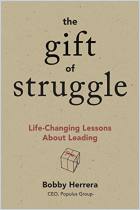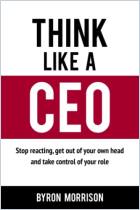Join getAbstract to access the summary!

Join getAbstract to access the summary!
Leon Shapiro and Leo Bottary
The Power of Peers
How the Company You Keep Drives Leadership, Growth, and Success
Bibliomotion, 2016
What's inside?
Being part of a peer advisory group can help CEOs and top executives solve problems and avoid isolation.
Recommendation
Chief executive officers, business owners and other top-level executives who join peer advisory groups can learn from their compatriots’ experience and may not feel as “lonely at the top.” Consultants Leon Shapiro and Leo Bottary show CEOs how joining a peer advisory group can help high-level leaders grow personally and professionally. In any industry, CEOs face common problems in HR, finance, marketing, and more. Having a sounding board of high-ranking industry peers aids troubleshooting. This three-part volume explains the power of “peer advantage,” the best ways to foster it and the factors that make a CEO peer advisory group successful. At times, Shapiro and Bottary use meaningless buzzwords – such as “optimize” or “accelerate.” And their advocacy openly stems from their leadership of an executive peer-group consultancy. However, reciprocal peer support at the highest corporate levels makes sense. getAbstract recommends this anecdotal manual as fresh meat for top dogs who want to join a pack.
Summary
About the Authors
Leon Shapiro and Leo Bottary work for Vistage Worldwide, an international peer advisory membership organization for CEOs, business owners and executives. Shapiro was its CEO from 2013 to 2016 and is now on the board of directors. Bottary is vice president of Peer Advantage.

















Comment on this summary